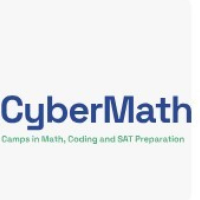In the ever-evolving landscape of education, math camps stand out as beacons of innovation, challenging traditional teaching methods and fostering a love for mathematics among students of all ages. These specialized camps are celebrated for their unique approach to teaching mathematics, merging the rigor of mathematical theory with the excitement of discovery and problem-solving. This article explores how math camps in the United States have redefined the learning experience, making mathematics both accessible and enjoyable.
A Break from Tradition
Traditional classroom settings, while effective for certain educational objectives, often emphasize rote learning and standardized testing. This approach can sometimes obscure the beauty and creativity inherent in mathematics. Math camps, on the other hand, adopt a philosophy that mathematics is not just a subject to be learned but an art to be appreciated. They provide a platform where young minds engage with mathematical concepts through games, puzzles, and real-world applications, making abstract theories tangible and fascinating.
Hands-On Learning Experience
One of the hallmarks of math camps is their hands-on learning experience. Campers are encouraged to explore mathematical concepts through experiments, projects, and collaborative problem-solving activities. This experiential learning approach not only deepens their understanding but also enhances their critical thinking and analytical skills. By tackling complex problems in a supportive environment, students learn to embrace challenges and appreciate the process of finding solutions, fostering a growth mindset that is invaluable in all areas of life.
Fostering a Community of Math Enthusiasts
Math camps are not just about learning; they are about belonging. They bring together like-minded individuals from diverse backgrounds, united by their passion for mathematics. This sense of community is instrumental in breaking down the stereotype that math is a solitary pursuit. Campers form lasting friendships, inspired by mutual respect and a shared love for mathematics. The collaborative atmosphere at math camps ensures that learning is not only productive but also immensely enjoyable.
Customized Learning Paths
Recognizing that every student has a unique learning curve, math camps offer personalized instruction tailored to the needs and abilities of each camper. Whether it’s a young learner taking their first steps into algebra or a high school student tackling advanced calculus, math camps provide the resources and support for every camper to thrive. This individualized approach helps in nurturing a positive mathematical mindset, empowering students to reach their full potential.
The Impact Beyond Camp
The influence of math camps extends far beyond the summer. Campers return to their regular academic pursuits with a renewed vigor for learning and an enhanced capability to think mathematically. The problem-solving techniques, logical reasoning skills, and the ability to work collaboratively are transferable skills that benefit students across all subjects. Moreover, the exposure to advanced mathematical concepts and career possibilities in STEM fields inspires many campers to pursue higher education and careers in mathematics, science, and engineering.
Summing up, math camps in the United States have revolutionized the way mathematics is taught and learned. By integrating hands-on activities, fostering a supportive community, and emphasizing the joy in problem-solving, these camps have made mathematics accessible and enjoyable to students of all ages. Their unique approach not only cultivates a deep appreciation for the beauty of mathematics but also equips young learners with the skills and confidence to tackle complex problems, both in and out of the classroom. As we look to the future, the pioneering spirit of math camps continues to inspire educational innovation, making them a vital part of the landscape of mathematics education.

